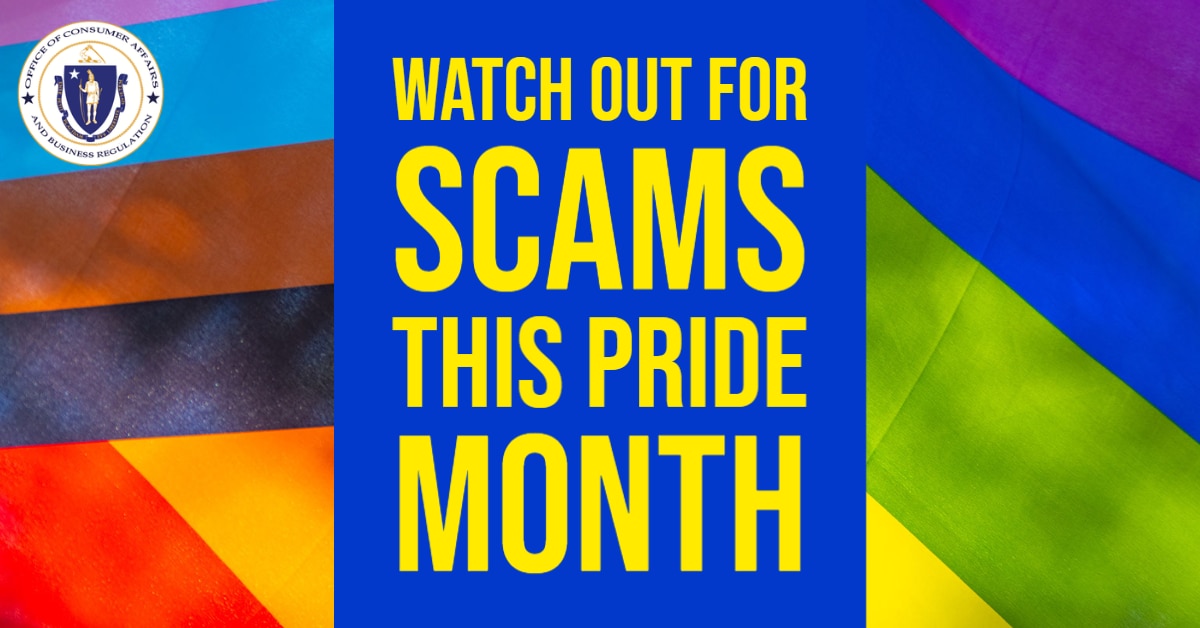- Office of Consumer Affairs and Business Regulation

June is Pride Month. It is a time to celebrate and recognize the influence the LGBTQIA+ community has around the world. But it appears scammers are taking advantage of this recognition and targeting this community. Cryptocurrency scams are on the rise, and the Federal Trade Commission recently issued a warning to the LGBTQIA+ community that they have become the target of this type of fraud. Scammers may present themselves through phishing, text message, phone calls, social media, or on dating apps.
Fraudsters may contact their victim impersonating a friend, partner, or family member asking for funds due to an emergency or debt. Alternatively, scammers will develop new relationships with their target, usually with romantic intentions to then receive monetary gifts and steal personal information. Requests to deal in unconventional forms of payment like cryptocurrency are a red flag that something may not be right. The Office of Consumer Affairs and Business Regulation compiled a list of things to help you spot a crypto scam.
- Calls or texts from an “friend” offering you a fast and easy way to make a lot of money through crypto. This get rich quick scheme often requires a deposit in cryptocurrency to get started.
- Unsolicited messages telling you to click a link or call a phone number to speak with someone about how to deal in in crypto, or a promise to pay off loans.
- Social media friend requests or messages from someone with minimal profile activity, a new account, or no mutual connections looking for details about your personal life or investments. This eventually leads to a request for cryptocurrency wallet passwords.
- Matches on dating applications that move very quickly but refuse in-person connection. This individual often professes their love then asks for money, gifts, or crypto credentials.
In each of these scenarios, once the scammer catches your attention with false promises or a sense of urgency, their goal is to steal personal information, money, or both. When browsing the internet, answering unsolicited messages, or searching for love, keep in mind the below advice before taking any action.
- Never send or transfer funds to someone you don’t know or have never met face-to-face
- Don’t share passwords or other sensitive information with anyone
- Avoid clicking on links or opening attachments in unsolicited emails
- Minimize the amount of personal details available on social media accounts
If you think you or were a victim of a crypto scam, please report it to the Federal Trade Commission, Federal Communications Commission or the Attorney General’s Office at 617-727-8400. Visit the Office of Consumer Affairs and Business Regulation’s website for more details about spotting scams and preventing identity theft online.

